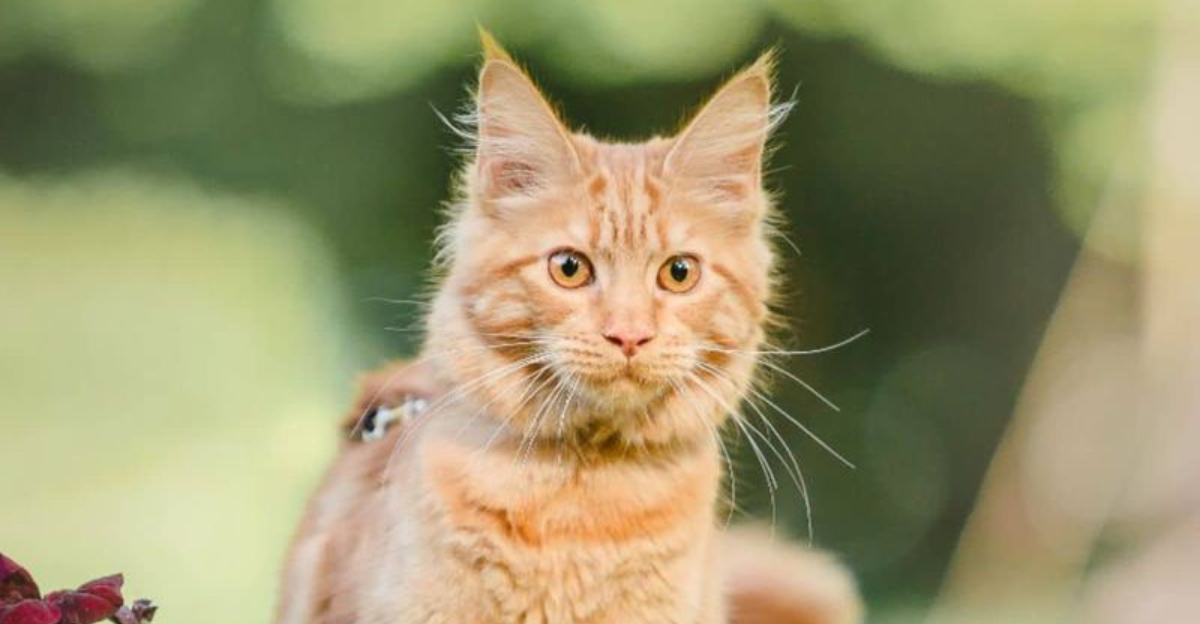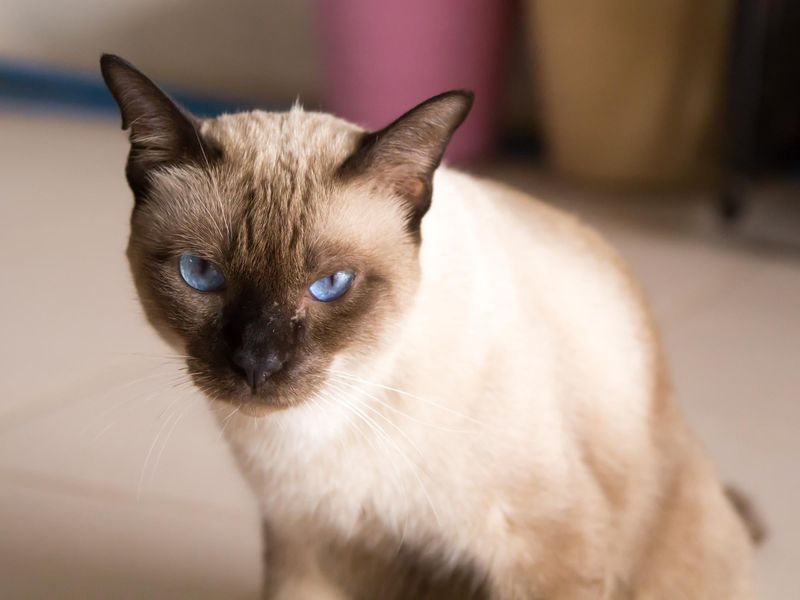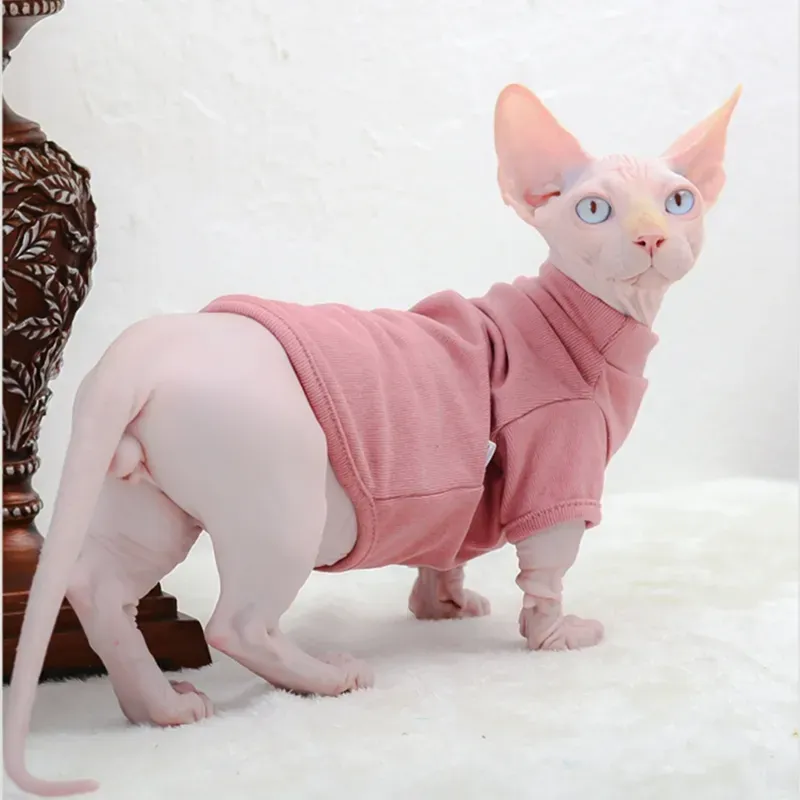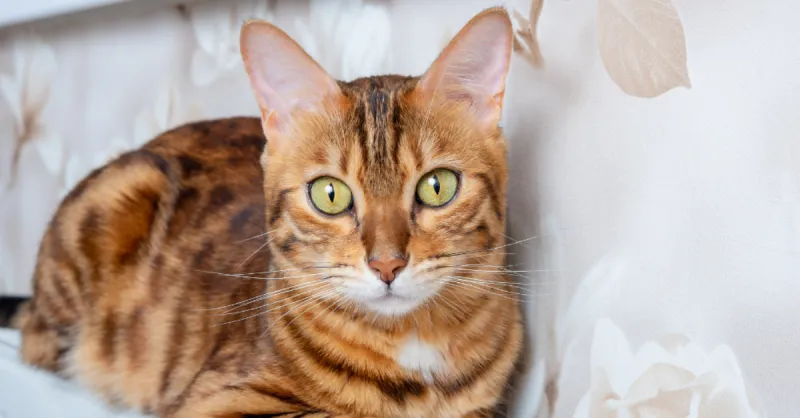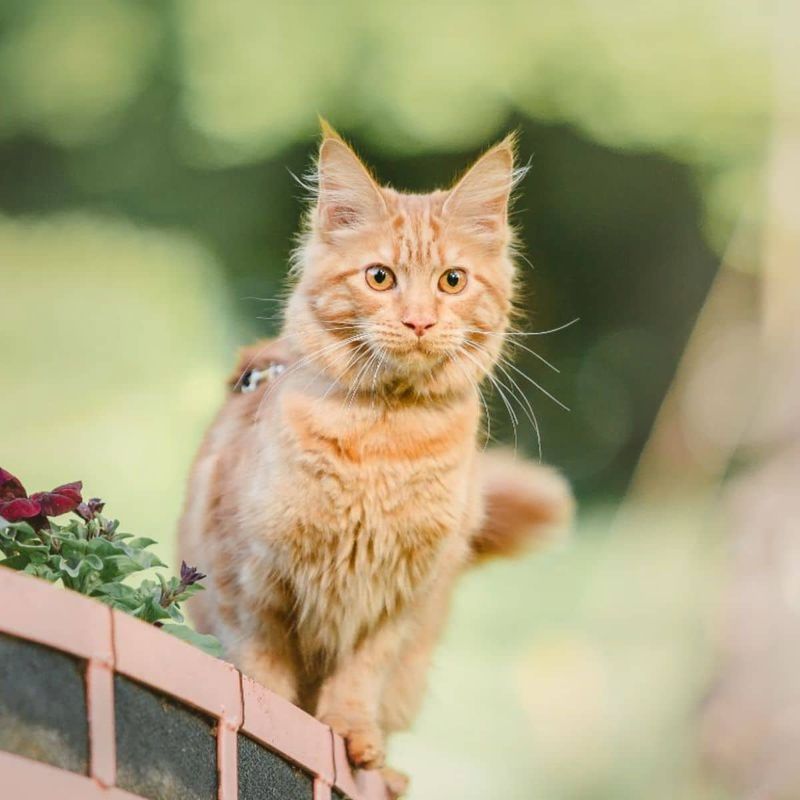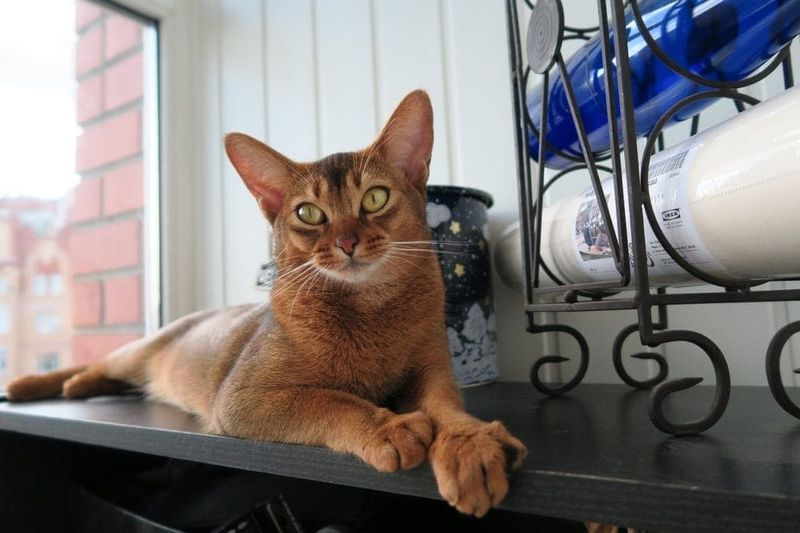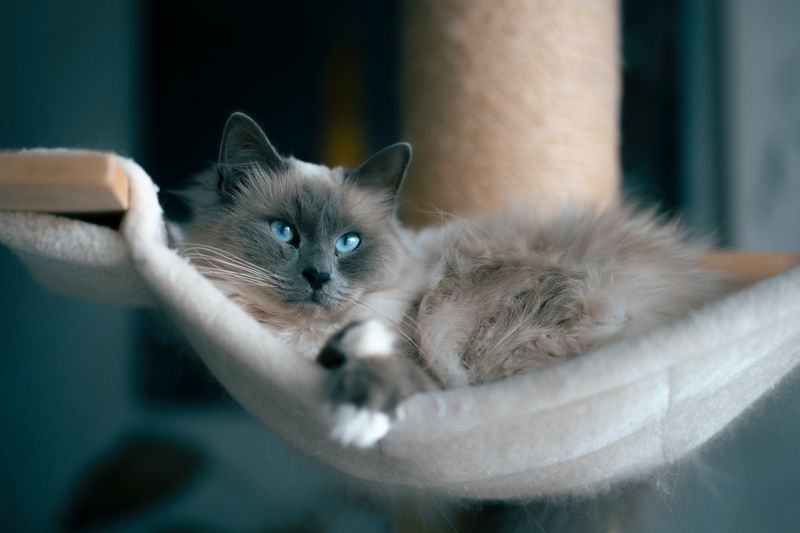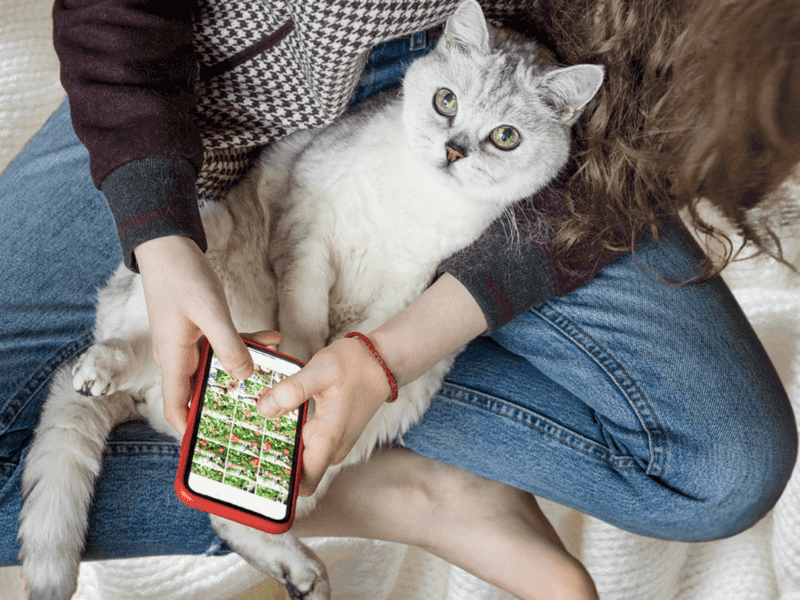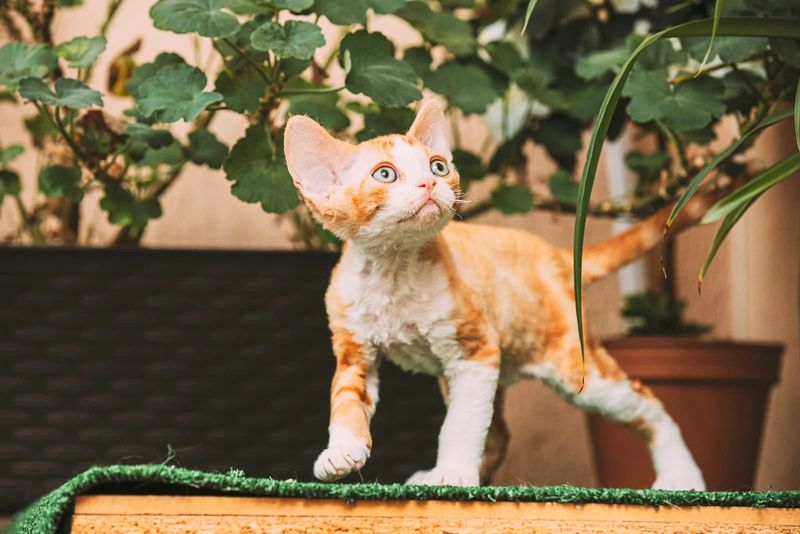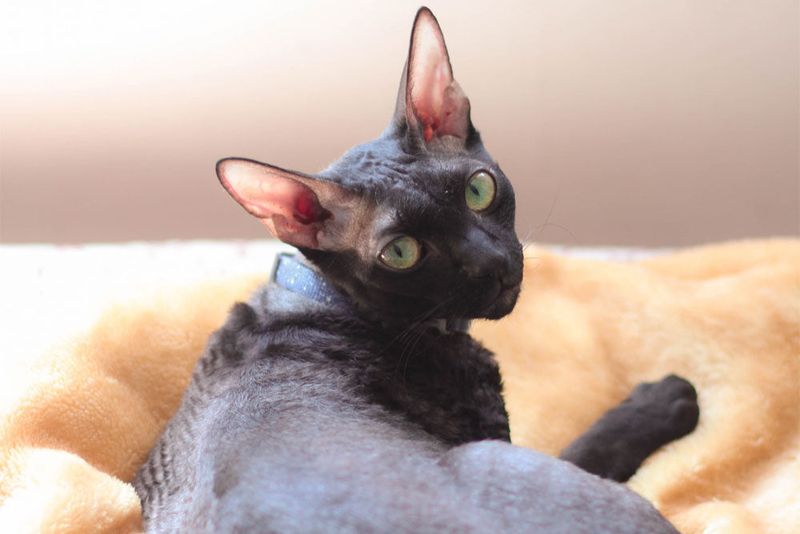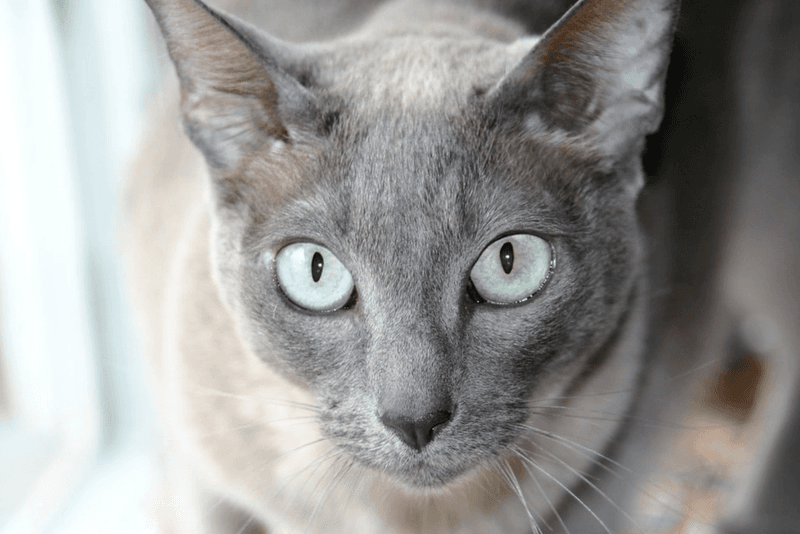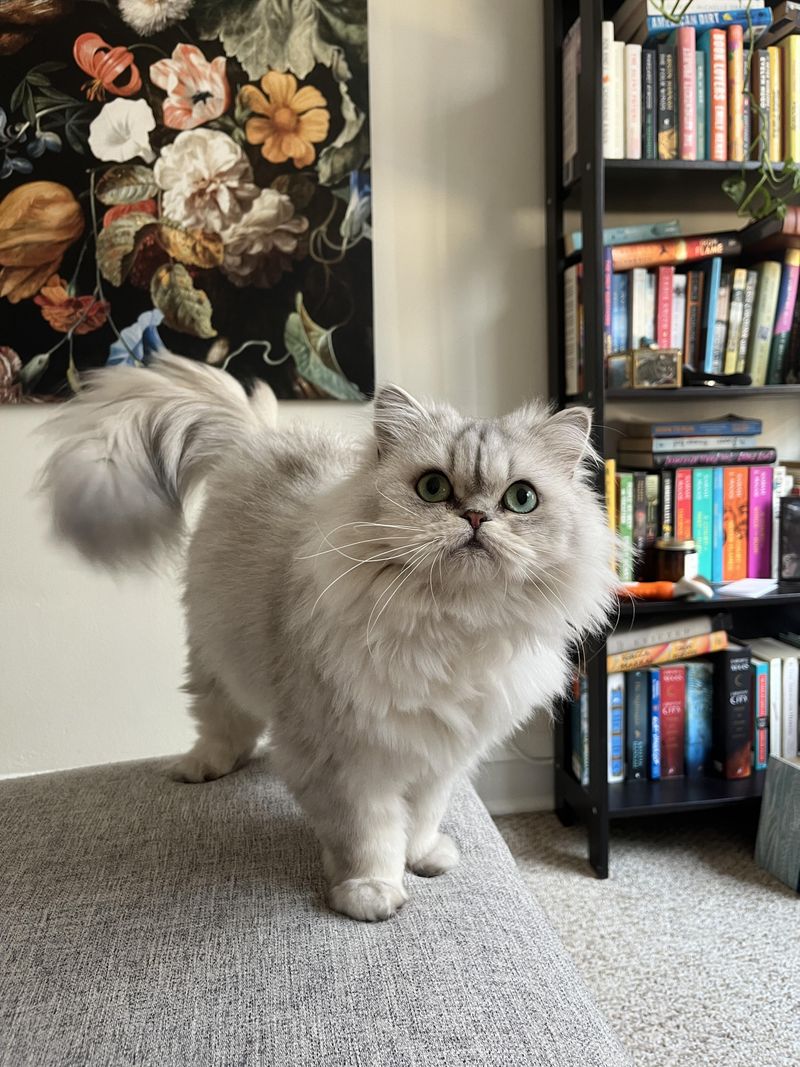📖 Table of Content:
When we think of demanding pets, dogs usually come to mind first. But some cat breeds can be just as needy, constantly seeking your attention and affection. These feline friends don’t fit the independent cat stereotype at all. Instead, they’ll follow you around, meow for interaction, and even get upset when you don’t give them enough love and playtime.
1. Siamese
Siamese cats are famous for their loud, raspy voices that they’re not afraid to use. These blue-eyed beauties will talk your ear off all day long if you let them. They’re extremely social and hate being left alone for extended periods. Siamese cats form intense bonds with their humans and often choose one family member as their favorite person.
They’ll follow this person everywhere, even to the bathroom! Many owners describe having a Siamese as similar to having a clingy shadow. These intelligent cats need mental stimulation along with physical attention. Without proper engagement, they may develop destructive behaviors out of boredom and frustration.
2. Sphynx
The hairless Sphynx isn’t just attention-seeking for companionship reasons—they actually need your body heat! Without fur to keep them warm, these cats actively seek human contact for warmth and comfort.
Their need for closeness makes them exceptionally cuddly companions. Sphynx cats are known for greeting their owners at the door like dogs and immediately jumping into laps whenever someone sits down. Their lack of fur means they require regular bathing, creating even more bonding time between pet and owner. Despite their somewhat alien appearance, Sphynx cats are incredibly affectionate and playful. They form deep bonds with their families and suffer from separation anxiety if left alone too long.
3. Bengal
With their wild appearance and affectionate nature, Bengals are full of surprises. They’re high-energy, brainy, and need constant play and mental challenges. Boredom leads to mischief—sometimes at your expense. Bonus quirk: many Bengals are obsessed with water and might hop into the shower!
They’re notorious for opening cabinets, drawers, and even refrigerator doors when bored. Many Bengal owners invest in puzzle toys and cat wheels to help manage their pet’s boundless energy. Contrary to their wild appearance, Bengals crave human interaction and can become destructive if ignored. Their loud, distinctive vocalizations ensure you’ll never forget when they want attention.
4. Maine Coon
Don’t let their massive size fool you—Maine Coons are gentle giants with puppy-like personalities. These fluffy behemoths will follow you from room to room, chirping and trilling for attention rather than meowing.
Despite their independent capabilities, they prefer being wherever you are. Maine Coons are known for their dog-like loyalty. They’ll greet you at the door, play fetch, and even come when called by name. Their sociable nature makes them excellent family cats, as they typically get along well with children and other pets. These cats mature slowly, maintaining kitten-like playfulness well into adulthood. Many Maine Coon owners report their cats still acting like kittens at 3-4 years old, demanding playtime and interaction.
5. Abyssinian
Always in motion, Abyssinians are full of life and curiosity. Though they’re not the cuddliest breed, they expect your full attention through interactive play and shared exploration.
An Abyssinian will bring you toys, climb to high places to show off, and generally make sure you’re watching their antics. They excel at learning tricks and can be trained to walk on leashes, further satisfying their need for engagement with their humans. These cats are notorious for their intelligence and problem-solving abilities. Many Abyssinian owners find themselves constantly amazed at what their cats can figure out, from opening doors to turning on faucets when they want fresh water.
6. Ragdoll
Known for going limp in your arms, Ragdolls are far from passive. They actively seek out physical affection and stick close to their humans, preferring companionship over solitude.
They’re known to greet their owners at the door and may even learn to come when called. Their docile nature makes them perfect for families, but it also means they suffer greatly when left alone. Ragdolls often sleep with their owners and may become distressed if denied access to their human’s bedroom at night. Many owners report their Ragdolls waiting outside bathroom doors or shower curtains until they emerge.
7. Burmese
True to their “velcro cat” reputation, Burmese cats are affectionate companions who stick close to their people. Expect them to claim your lap, your workspace, and your heart. Their charming, gentle voices are used often—and usually to ask for play or snacks.
Burmese are known for their intelligence and can learn tricks quickly when motivated by attention and affection. They retain kitten-like playfulness well into their senior years. Family-oriented to the core, Burmese cats typically get along well with children and other pets. They create strong bonds with all household members rather than selecting just one favorite person, making them excellent family companions who spread their neediness equally.
8. Devon Rex
These elfin-looking cats are full of energy and mischief. Devon Rexes perform stunts and silly antics not just for fun, but to make sure you’re watching. Their thin coats leave them craving heat, which makes a lap or sunbeam irresistible.
They’ll burrow under blankets, curl up against your neck, or sleep under your shirt if allowed. Many owners find themselves purchasing special cat sweaters for chilly days. Social butterflies by nature, Devon Rex cats get along wonderfully with other pets and children. They suffer from serious separation anxiety when left alone and do best in households where someone is home most of the time or with another animal companion.
9. Cornish Rex
Cornish Rex cats have soft, wavy coats that feel like velvet, but their personality is anything but soft and quiet. These energetic cats remain kitten-like throughout their lives, constantly seeking playmates and attention from their humans. Their curved bodies are built for speed and acrobatics.
Temperature-sensitive due to their unusual coat, Cornish Rex cats seek out warm spots, including human laps and shoulders. They’re notorious for learning how to open doors, drawers, and cabinets in their quest to be wherever their humans are. Many owners report their Cornish Rex learning to turn doorknobs! These cats have a unique ability to use their paws almost like hands, making them adept at tapping shoulders or faces when they want attention. Their persistence is legendary among cat breeds.
10. Tonkinese
Striking aqua eyes, a strong build, and nonstop affection define the Tonkinese. These cats don’t just follow you—they join you, talk to you, and make sure they’re part of your every moment.
Athletic and playful, Tonkinese cats excel at learning tricks and can be trained to walk on leashes. They love interactive toys and games that involve their humans. Many Tonkinese owners find themselves purchasing increasingly complex puzzle toys to keep their intelligent cats entertained. Tonkinese form strong bonds with their families and experience genuine distress when left alone for long periods. They do best in households where someone is usually home or with another animal companion to prevent loneliness.
11. Persian
Don’t let their calm nature fool you—Persians are quiet charmers who expect plenty of affection. They won’t vocalize like other breeds, but their expressive eyes and soft paw taps speak volumes. Their long, luxurious coats also mean a daily grooming commitment.
This necessary care creates a bonding routine that these cats come to expect and enjoy. Many Persian owners report their cats waiting at the grooming spot at the same time each day. Sensitive to household moods, Persians will often seek out family members who seem sad or stressed, offering silent comfort and companionship. Their intuitive nature makes them excellent emotional support animals.
